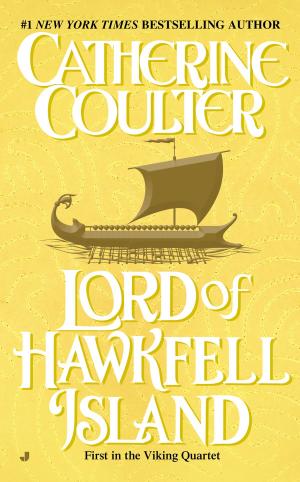Odyssey Uncharted: a World War II Childhood Adventure and Education Wrapped in mid-20th Century History
Biography & Memoir, Historical| Author: | Flemming Heilmann | ISBN: | 9781945330292 |
| Publisher: | Flemming Heilmann | Publication: | June 16, 2017 |
| Imprint: | Smashwords Edition | Language: | English |
| Author: | Flemming Heilmann |
| ISBN: | 9781945330292 |
| Publisher: | Flemming Heilmann |
| Publication: | June 16, 2017 |
| Imprint: | Smashwords Edition |
| Language: | English |
A yarn about Flemming's itinerant World War II childhood and education in British colonial Malaya. The book leaps into a roiled global environment, which forces risky decisions and navigation of uncharted waters, sink or swim.
Imminent Japanese invasion plucks the frail five-year-old Flemming out of his environment within the bosom of benign Muslim culture on a Malayan rubber plantation, where his father is in charge of a Danish owned group of properties. Abdul Rahman is his Malay mentor, whose daughter, Fatima, is his beloved playmate. Alongside his brother, John, and mother, Hedde, he waves his father a fearful, tearful farewell in a monsoon deluge as an evacuation vessel inches sideways from its Singapore dock through the gloom. They are refugees headed for unknown Australia, while his father, known as PB, stays at his job managing the plantations until he too must flee. Eventually, PB escapes with newfound friends on a river steamer stolen in Singapore Harbor, to reach Perth via the Indonesian archipelago after months of naked peril. The family is reassembled for years of refugee life assuaged by generous Australians.
Peace in Europe prompts another perilous odyssey, evading kamikaze attacks in the Pacific, and returns the family to Europe before the Japanese capitulate. As Hedde returns to Malaya to join PB, her religious conviction consigns Flemming to an evangelical school in otherwise secular Denmark. Beyond reach of missionaries, he sinks roots into Danish culture, observing its socialist embrace of Janteloven – a Nordic egalitarian dogma, which scorns individualism and personal achievement. Upon a return visit to his parents in Malaya, he survives a communist insurgent attack on the plantation homestead, and then soaks up the eclectic folklore, colors, sounds and smells of the country. PB's pragmatic leadership and grasp of risk make a deep impression.
In England, Flemming at last spent four years at Gresham's School after attending nine different schools in eight years of frenetic change. He embraces western democracy with a dash of Danish egalitarianism and a heavier dose of market economics gleaned from his teacher and mentor, Eric Kelly. Sports become a priority. He gets to appreciate America's role in the post-war global recovery and sees its economic engine driving social and technological progress. A long vacation exposes him to South Africa's early apartheid and an encounter with Swaziland's King Sobhuza, resplendent in leopard skins and eagle feathers. Back at school in England he leads a precocious mutiny, unseating the perverse headmaster.
Years in the academic cocoon that is Cambridge University are stimulating, yet sometimes frivolous. Preconceptions are reversed, religion rejected, government intervention in personal choice is confronted. Policies of entitlement, and the dependence they foster, are questioned as Flemming focuses on opportunity and self help. New career aspirations are hatched. The sway of teaching masterminds on this unexceptional student inevitably molds a solid intellectual footing. Life is replete with social events and rugby. The traditions, scenery and architecture of this ancient crucible of learning are soaked up. Finally, two years of hands-on training in the grimy industrial heartland of Britain help prepare Flemming for the real world. The yarn concludes as he disembarks in Cape Town to plunge into an uncharted career in the African hinterland beyond Table Mountain's purple silhouette. There he will either sink or swim.
An epilogue visits lessons learned from an itinerant childhood and realities encountered. They pertain to issues like religion, sociopolitical dogma, family structure, waste and the role of risk in mankind's progress - issues given short shrift in today's classrooms, where preconceptions, risk aversion and instant gratification displace the recognition of opportunity.
A yarn about Flemming's itinerant World War II childhood and education in British colonial Malaya. The book leaps into a roiled global environment, which forces risky decisions and navigation of uncharted waters, sink or swim.
Imminent Japanese invasion plucks the frail five-year-old Flemming out of his environment within the bosom of benign Muslim culture on a Malayan rubber plantation, where his father is in charge of a Danish owned group of properties. Abdul Rahman is his Malay mentor, whose daughter, Fatima, is his beloved playmate. Alongside his brother, John, and mother, Hedde, he waves his father a fearful, tearful farewell in a monsoon deluge as an evacuation vessel inches sideways from its Singapore dock through the gloom. They are refugees headed for unknown Australia, while his father, known as PB, stays at his job managing the plantations until he too must flee. Eventually, PB escapes with newfound friends on a river steamer stolen in Singapore Harbor, to reach Perth via the Indonesian archipelago after months of naked peril. The family is reassembled for years of refugee life assuaged by generous Australians.
Peace in Europe prompts another perilous odyssey, evading kamikaze attacks in the Pacific, and returns the family to Europe before the Japanese capitulate. As Hedde returns to Malaya to join PB, her religious conviction consigns Flemming to an evangelical school in otherwise secular Denmark. Beyond reach of missionaries, he sinks roots into Danish culture, observing its socialist embrace of Janteloven – a Nordic egalitarian dogma, which scorns individualism and personal achievement. Upon a return visit to his parents in Malaya, he survives a communist insurgent attack on the plantation homestead, and then soaks up the eclectic folklore, colors, sounds and smells of the country. PB's pragmatic leadership and grasp of risk make a deep impression.
In England, Flemming at last spent four years at Gresham's School after attending nine different schools in eight years of frenetic change. He embraces western democracy with a dash of Danish egalitarianism and a heavier dose of market economics gleaned from his teacher and mentor, Eric Kelly. Sports become a priority. He gets to appreciate America's role in the post-war global recovery and sees its economic engine driving social and technological progress. A long vacation exposes him to South Africa's early apartheid and an encounter with Swaziland's King Sobhuza, resplendent in leopard skins and eagle feathers. Back at school in England he leads a precocious mutiny, unseating the perverse headmaster.
Years in the academic cocoon that is Cambridge University are stimulating, yet sometimes frivolous. Preconceptions are reversed, religion rejected, government intervention in personal choice is confronted. Policies of entitlement, and the dependence they foster, are questioned as Flemming focuses on opportunity and self help. New career aspirations are hatched. The sway of teaching masterminds on this unexceptional student inevitably molds a solid intellectual footing. Life is replete with social events and rugby. The traditions, scenery and architecture of this ancient crucible of learning are soaked up. Finally, two years of hands-on training in the grimy industrial heartland of Britain help prepare Flemming for the real world. The yarn concludes as he disembarks in Cape Town to plunge into an uncharted career in the African hinterland beyond Table Mountain's purple silhouette. There he will either sink or swim.
An epilogue visits lessons learned from an itinerant childhood and realities encountered. They pertain to issues like religion, sociopolitical dogma, family structure, waste and the role of risk in mankind's progress - issues given short shrift in today's classrooms, where preconceptions, risk aversion and instant gratification displace the recognition of opportunity.















